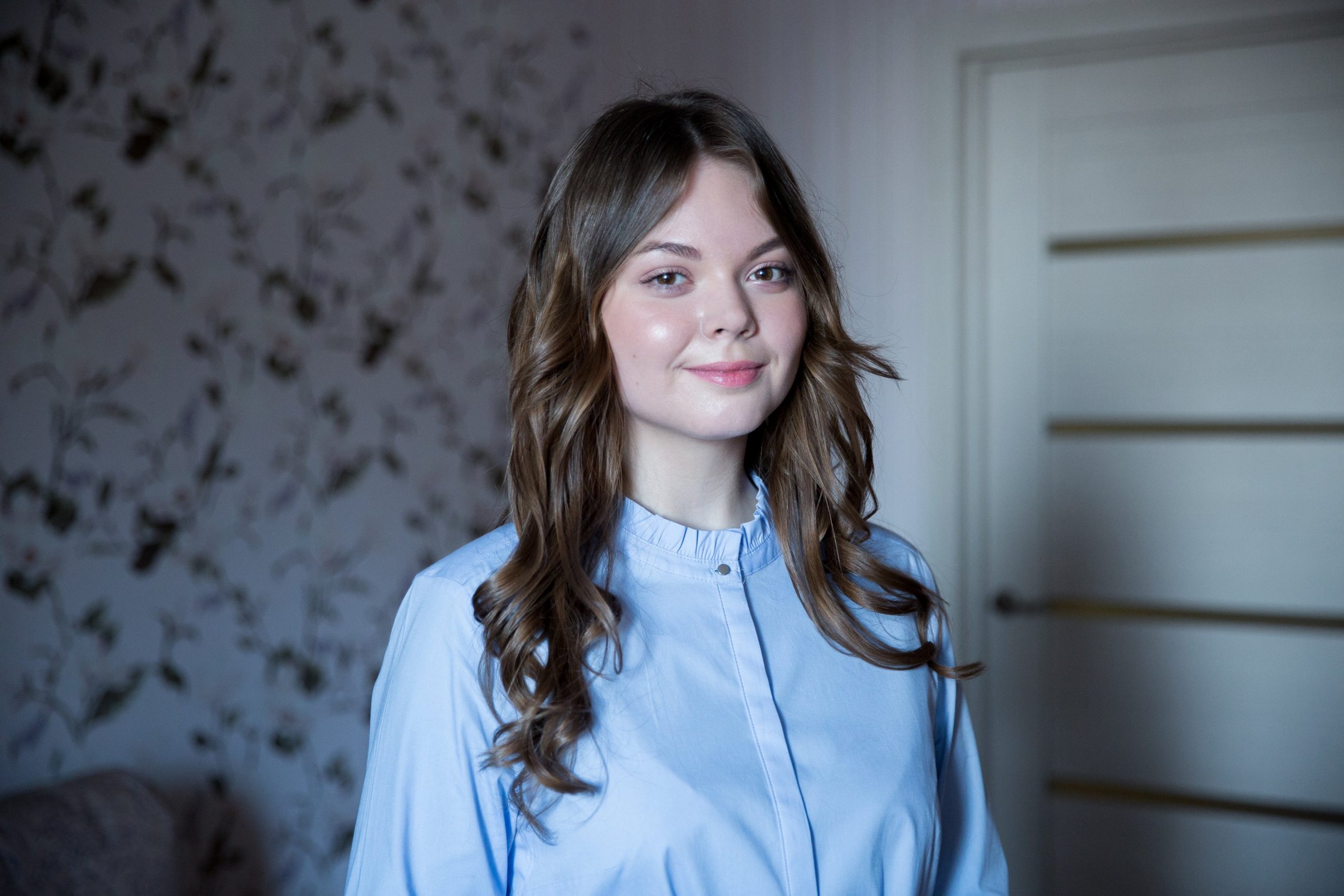“The disease declared war on us”
Anya Aleksandrova had a slim chance of recovering. Natalya, her mother, was seriously afraid that the doctors would decide a bone marrow transplant was too dangerous, and sooner or later the two of them would just have to go home untreated. In order to find out all the details of how Anya’s life was saved, and what it’s like spending three years living on the edge before life and death, we came to visit Anya and Natalya, our new heroes of the Blood Family project.
We’re reporting from Cheboksary. It’s been five years since the transplant. Anya and Natalya were prepared to have this difficult conversation only to support the parents and children whose transplants are yet to come, so that they can believe, fight, and keep going to the end.
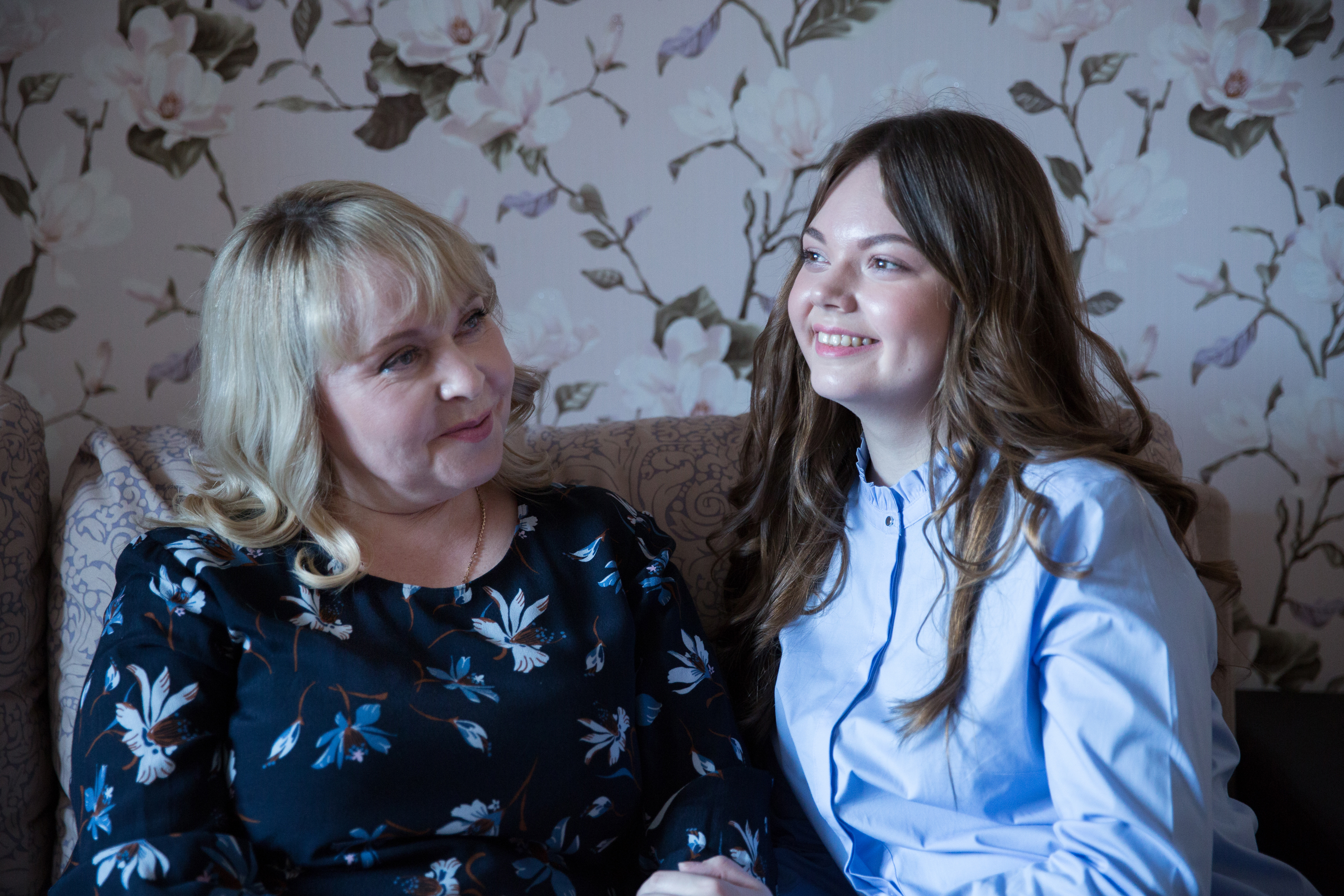
Natalya and Anya at home
They both say they’re strong. They never give up, and they’re confident that they can handle anything that comes. Anya is now studying at a performing arts college, where she’s learning singing, music, and acting, and she has ambitious plans for the future.
Here’s what Anya tells us:
“I was very little at the time. I can remember going to school and I can remember skipping school. I can remember having friends. I can remember my dance classes. The illness began in the summer holidays. All of a sudden, I found myself getting very tired, and I didn’t feel like doing anything at all. My blood test came back with low cell counts. They sent me to hospital, where I was given hormone therapy, but it didn’t help at all. That’s when I ended up in Moscow, at the Dmitry Rogachev Centre.
I was very sick, and all I can remember is the volunteers coming to see me and trying to cheer me up and distract me from how I felt. I really want to thank them for what they did!
The disease that struck Anya like a bolt from the blue is called aplastic anaemia. It made her give up all her plans, and turned her life upside down. For whatever reason, her bone marrow stopped making blood cells. In hospital, Anya kept having to receive blood transfusions, and, of course, the doctors tried to “reboot” her bone marrow. Alas, the attempts did no good.
“Atgam [antibody transfusion medicine –ed.] didn’t help. The doctors tried three times, and every time, half a year later, we were told it hadn’t worked. It was really tough spending all that time being treated in hospital, but Mum always encouraged me. She’d say that what mattered right now was getting better, and that my family was waiting for me at home.”
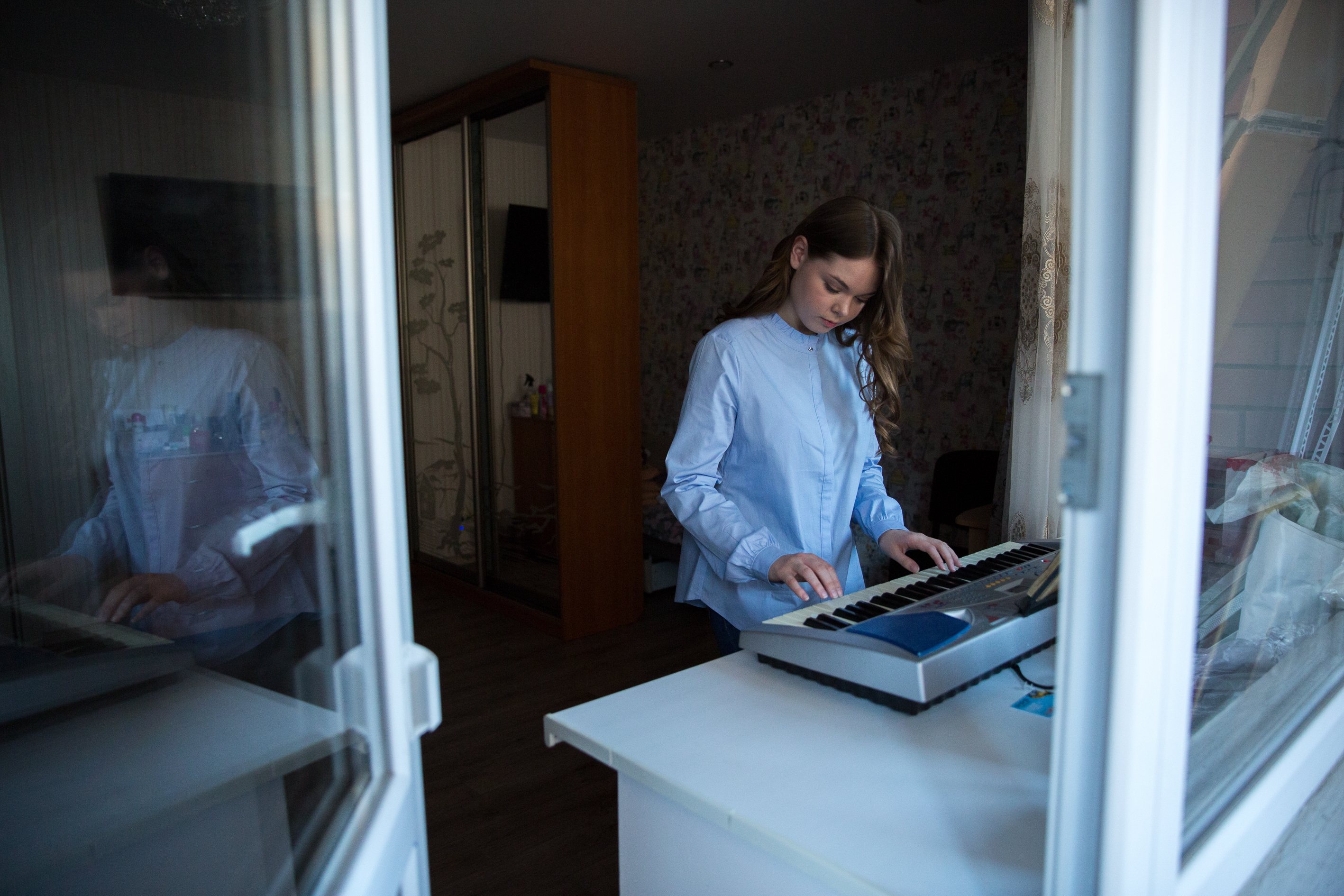
Anya studies performing arts
“I’m going to keep heading towards my goal, and never give up”
Anya kept studying while in hospital. She made sure not to fall behind on the curriculum. She also spent her time drawing, embroidering, and reading a lot. These days, she’s started to forget about what happened while she was sick. “That’s how it should be. Bad memories should fade away. But the fact that I reached my goal and got better is helpful to remember.”
Anya barely recalls the discussions about bone marrow transfer. She was aware that she needed a doctor and that one couldn’t be found. She never asked why in the end it was her mother, who’s only 50% compatible with her. “I was just happy that Mum would be my donor! Back when I got transferred to the transplant ward, I had only one thought in my head: we’re about to put it all to an end and go home. I’ll finally get to see my loved ones!”
It’s been five years. Anya didn’t come back to school after all, and ended up studying at home. At 17, she entered a performing arts college. After graduation, she wants to go to a drama university in St Petersburg or Kazan.
According to Natalya:
“I would tell Anya, ‘the disease has declared war on us. Either we beat it, or it beats us. There’s no third option.’ Until it happened, Anya had been growing up a healthy child. She’d never been in hospital. She’d never even had angina. But in 2011 her dad passed away, and only a month later she started feeling sick. Looking back, I wonder if it was a result of stress. Many thanks to the head doctor in Cheboksary, who pushed for us to go to Moscow. The Moscow doctors began treatment the very day we arrived.”
However, they had no luck finding a doctor in the international registry. Natalya was only a 50% match for her daughter. “I understood that we’d gone through the entire series of treatments, and that children who just don’t respond to treatment might end up being simply sent home.
But Anya was a star. She kept on fighting, she never gave up, she never complained, and she just kept saying that everything was all right.
“Go ahead and cry. Just for today, I’ll let you off”
Natalya kept insisting that she could be a donor. “Then, one day, the doctors came together for a discussion and ended up saying, ‘We’re going for it’. That was then I couldn’t hold back my tears, even though the head of the department didn’t like it when we cried. She told us, ‘Go ahead and cry. Just for today, I’ll let you off’”. My hands trembled as I signed the papers. I understood that our odds were very low.”
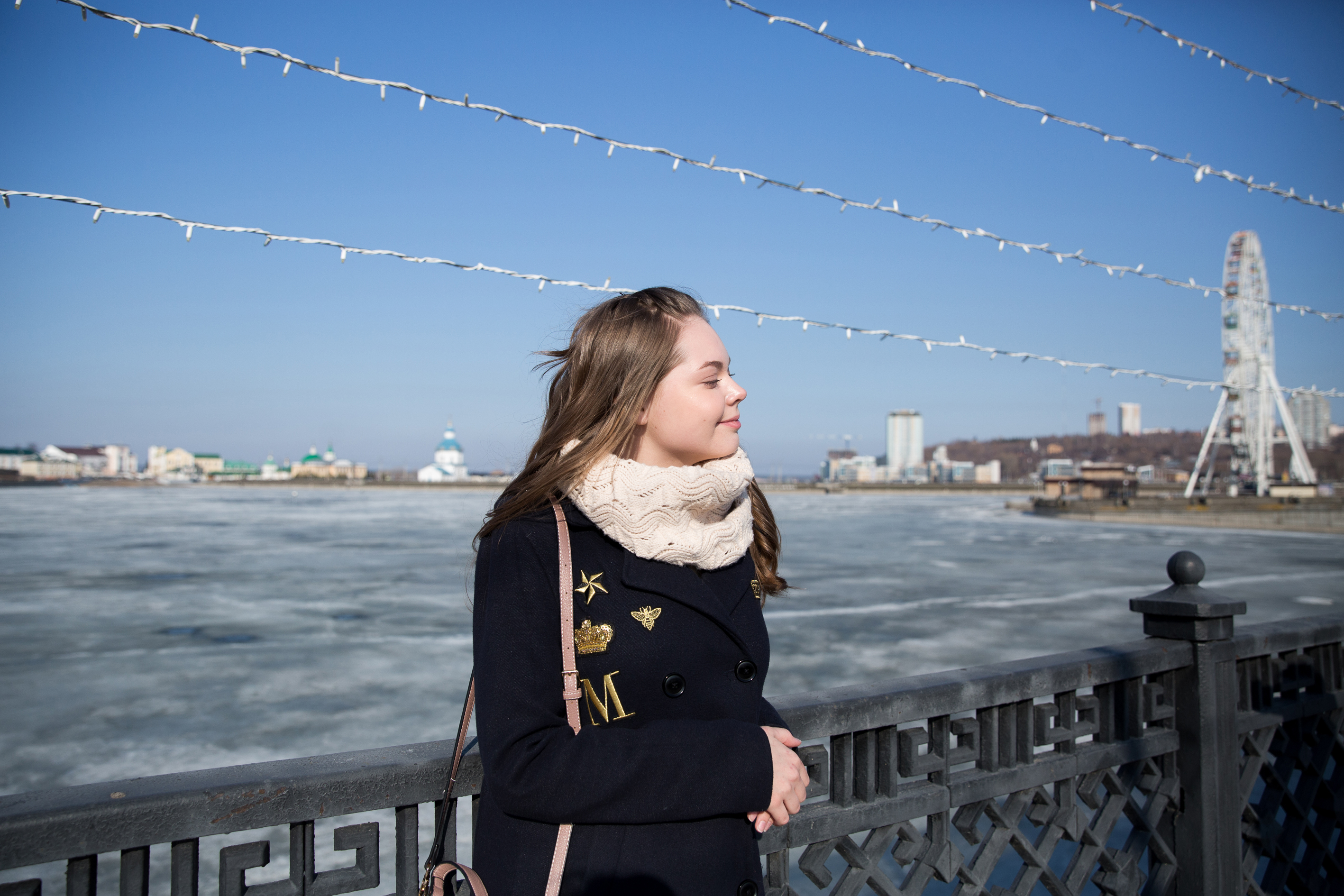
Anya in her hometown Cheboksary
It was science that saved Anya, cutting-edge technology that allowed the doctors to perform bone marrow transplants from partially compatible donors. Parents are only 50% compatible with children, and before, that wasn’t enough. It takes near-100% compatibility to avoid the severe complication known as the “graft versus host reaction”.
But then came transplant purification technology, which removes just the sells responsible for “graft versus host” from the donated bone marrow. Only once that’s done is the “purified” collection of cells given as a transfusion.
Natalya didn’t give Anya any details. She just said they were on the finish line. Just a little further, and they could go home. “The volunteers were a great help. After all, we needed to get everything together in a hurry, and then, in the transplant ward’s sterile room, everything had to be sparkling clean. If your clothes got dirty, they had to be washed, ironed, and disinfected. They kept telling us: if the child hadn’t eaten something within half an hour, you had to throw it away. We spent four to five months in the sterile room, and sometimes we got really scared.”
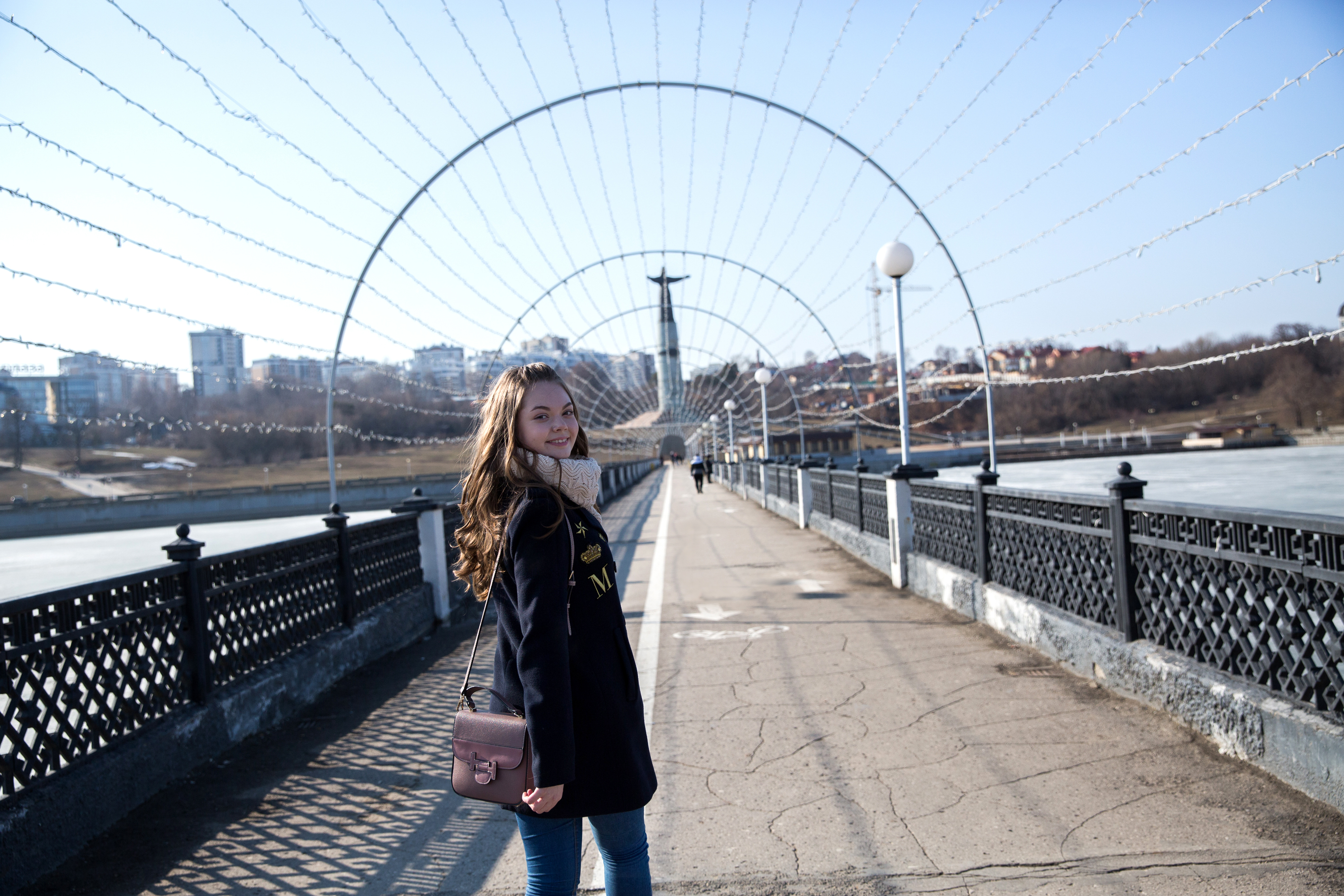
The best is yet to come
On the bright side, they found out very quickly that the transplant had been successful. The cells had already been integrated after 18 days, and Anya stopped receiving transfusions. Thank goodness that they’d had Natalya. “If it hadn’t been for me, none of this would have been possible. They took the cells from me straight away, gave them to Anya, and from there it was just a matter of time.”
Anya and her mother hadn’t been home for two and a half years. They felt like they’d come home to a different city. After that, they spent two years regularly visiting Moscow for tests. “I want to thank the doctors, and the relatives who supported us all that time, from the bottom of my heart. I feel like after what we went through together, nothing can scare me anymore. Back when they told us we could go home, I felt like I was in heaven.
We walked out of the hospital, and we were given a salute, as if they were celebrating our victory! And victory is exactly what it was.
This was a victory won by Anya and her mother, by the doctors, the volunteers, and the countless people who help children. It’s this kind of support that makes such happy endings possible.
Gift of Life thanks all donors and supporters! Together we give children like Anya a better chance to beat cancer.
Read Anya’s story in Russian here.

